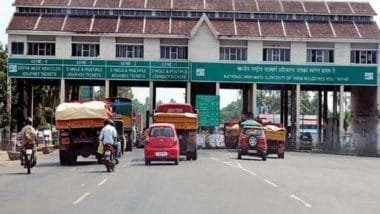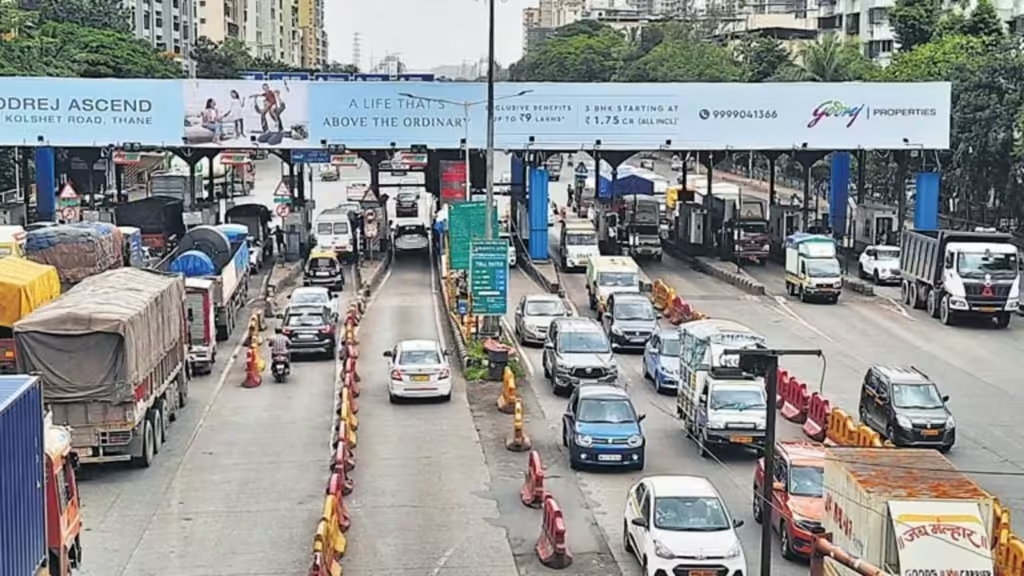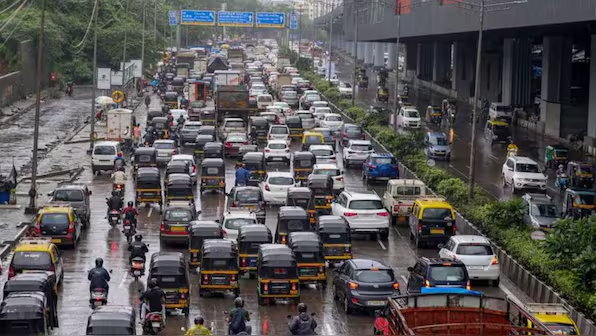Key Highlights:
The Maharashtra government has for the first time waived tolls for light motor vehicles at all five major entry points into Mumbai. It would mean more than 2.8 lakh commuters entering the city every day will benefit from the decision to waive this charge, effective October 14, 2024. The drive would reduce traffic congestion, save commuters time otherwise spent at the booths, and also save commuters money. This waiver of the toll will remain effective until the year 2026 and will come across a mixed response from regular commuters, transport organizations, and political analysts.
Toll Waiver Extent
This waiver is for the five major entry points into Mumbai city, which are Dahisar, Mulund, Airoli, Vashi, and Tinhath Naka. Formerly, commuters paid between ₹45 to ₹75 at these tolls. However, with the introduction of this latest waiver, light vehicles like cars, jeeps, and small trucks can pass through the city free of charge without paying the toll amount, whereas heavy vehicles, such as buses and trucks, cannot. Such discrimination has sparked wide debates into its wider transport dynamics in the city.

Impact on Daily Commuters
The instant advantage of this decision is that the savings of those daily commuters-majority who journey to and fro to Mumbai and its surrounding suburbs-will be in terms of money and time. Maharashtra Chief Minister Eknath Shinde, who came out with the decision, clarified that Waiver of toll would help relieve traffic congestion burden at these booths themselves. It is estimated that about 2.8 lakh vehicles, close to 80% of the total traffic entering Mumbai every day, will also benefit from this waiver. The balance 70,000 plus vehicles mainly heavy transport, will continue to pay the toll.

This relief would translate into smaller toll collections to the commuters, especially those who commute daily in private cars. Thousands of rupees savings to regular users would be much relief to the middle-class families and small business houses. The savings in waiting time at the toll booths may also increase the satisfaction to the commuters in peak hours.
Economic and Political Impact
The decision is not without a political hue. The toll waiver has come at a time when the Maharashtra Assembly elections are due, fueling speculations about the timing and intent of the move. Political analysts see in it an election strategy to win favor with the voters in the urban areas, more particularly in Mumbai and Thane region, which is situated next door to Mumbai. The move might appeal to the middle-class electorate, who have been complaining for long about the high toll rates, contributing to very high cost levels of daily travel.
However, the exclusion of heavy vehicles has worried the transport operators and logistics companies. Many of them believe that such commercial vehicles play a vital role in the supply chain and transport system of Mumbai and therefore should not be exempted to pay toll. Transport associations demanded further reforms: abolition of tolls for commercial trucks and on many border checkposts as they said it was only the way out to streamline transport to bring down the cost across the state.
Financial Effect to the State
While commuters celebrate relief, the state does incur a financial cost by waiving toll. A ₹50 lakh daily loss due to this will amount to over ₹180 crore per annum. This heavy loss in revenue has caused worry over the machinery needed by the government to rectify this financial depletion, especially in a year when Maharashtra needs infrastructural development on a large scale.
State officials defend the waiver by arguing that even in fiscal terms, the long term benefits―reduced congestion, faster commute times, and the millions of relief funds to citizens―outweigh the immediate loss of revenue. A form of relief as part of a large agenda for infrastructure modernization in the city of Mumbai, which will make it more accessible and efficient to its citizens.
What’s in it for the Commuters?
For the millions of commuters that use the roads of Mumbai, the toll waiver is going to change lives palpably. Travel would become easier-specially for those who have to ride through packed entry points in the city-for those using public transport or commercial vehicles, however, the toll exemption brings little direct relief.
Going forward, transport operators and commuter pressure groups are likely to continue to push for a comprehensive reform that addresses commercial vehicles as well as other logistical bottlenecks in the transport system of Mumbai. For now, however, the 2.8 lakh daily commuters who depend on light vehicles will appreciate the immediate access free of tolls into Mumbai and may even shape the political landscape in the run-up to elections.
For Latest News Updates Click Here
